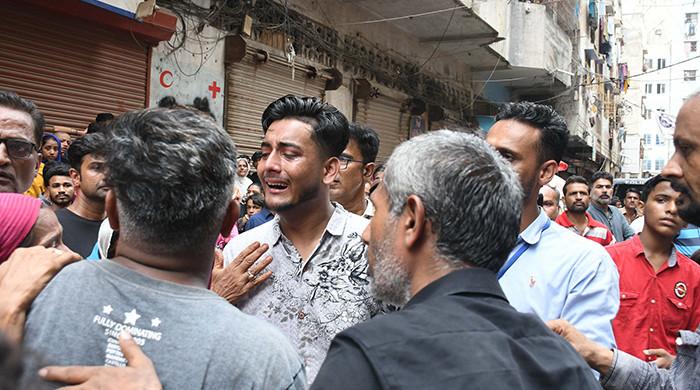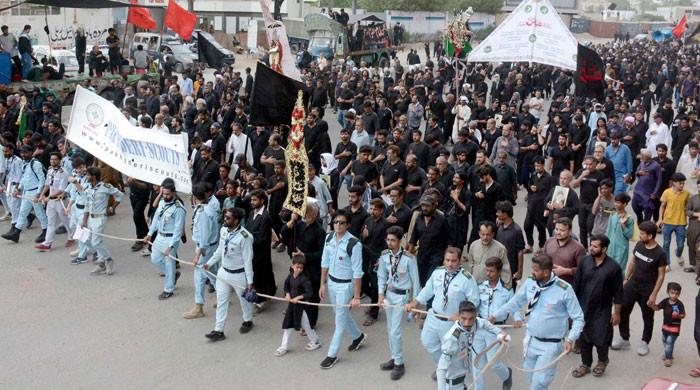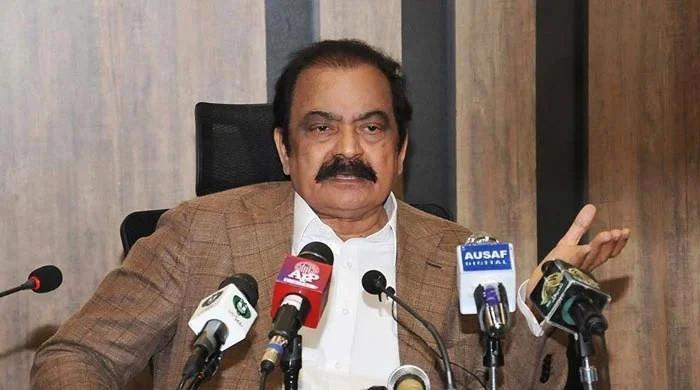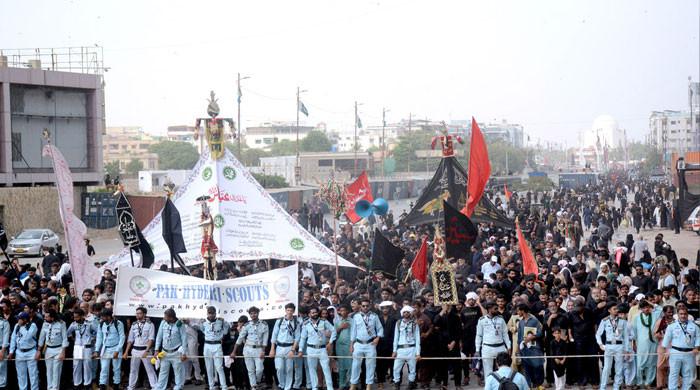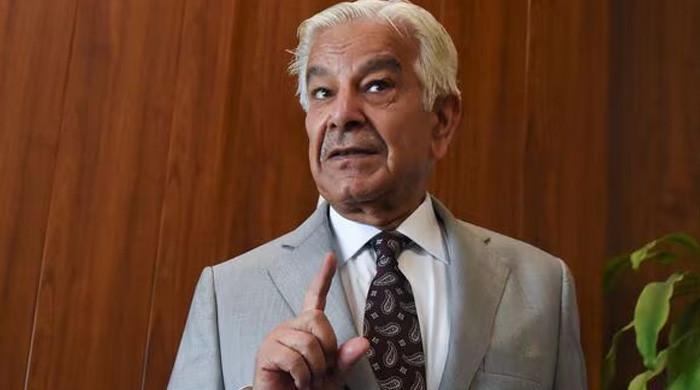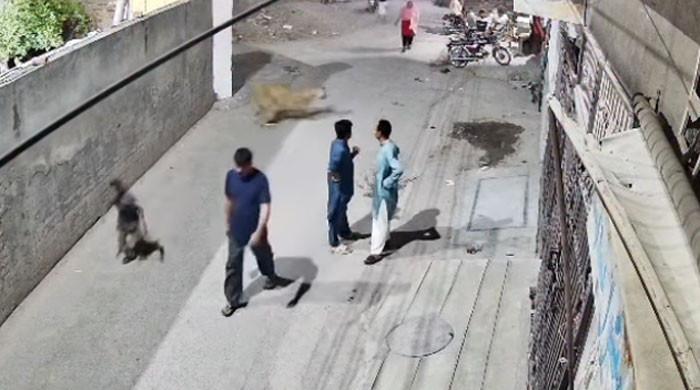Outgoing NA weakened democracy: think tank
Pildat's report says outgoing National Assembly passed a total of 279 legislation in five years
August 11, 2023
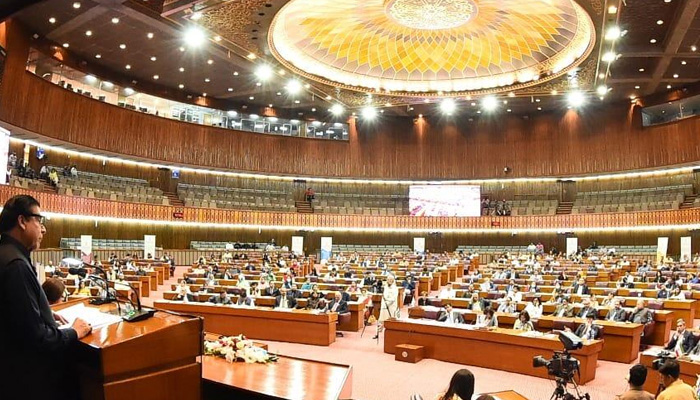
- Lawmakers allowed democracy to be weakened, report says.
- Outgoing NA passed 279 legislation in five years, Pildat mentions.
- National Assembly witnessed two different governments.
ISLAMABAD: Democracy has been left almost as vulnerable in Pakistan as it was when a new government was elected on July 25, 2018, the Pakistan Institute of Legislative Development and Transparency (PILDAT) has concluded in its assessment of the country's 15th National Assembly, The News reported.
The think tank mentioned that the previous National Assembly and elected representatives allowed democracy to be weakened, instead of putting in efforts to strengthen it in their five-year tenure in the parliament.
In its analysis of the state of democracy, in light of the outgoing legislature, stated that the president, upon the advice of the prime minister, dissolved the 15th National Assembly three days before the completion of its five-year term, which did not only push the timing of general election by an additional 30 days but has also raised doubts over the conduct of timely polls to the next National Assembly.
According to Pildat's report, the outgoing National Assembly passed a total of 279 pieces of legislation in five years, with the latest flurry of hasty legislation undermining basic tenets of the constitutional scheme of democracy and human rights.
Legislative activity in the 15th National Assembly witnessed an increase of 45% as compared to 192 laws passed during the 14th National Assembly, it added.
The outgoing National Assembly witnessed two governments; the first was led by former prime minister Imran Khan from August 18, 2018, to April 10, 2022; while the second government was formed by the Pakistan Democratic Movement with Shehbaz Sharif as Prime Minister which lasted from April 11, 2022 to August 9, 2023.
It said the PTI government relied heavily on ordinances for the purpose of legislation, adding that out of 75 ordinances laid in the NA in five years, only three were promulgated by the coalition government, while 72 were promulgated by the Pakistan Tehreek-e-Insaf government.
As compared to the term of the 14th National Assembly when only 38 ordinances were promulgated, a 97% increase was witnessed in the number of ordinances passed by the 15th NA, the Pildat said, adding that it has passed the largest number of laws compared to the previous three assemblies starting from 2002.
The Pildat said that in the last three weeks of the 15th NA, 73 bills were passed, out of which 36 (49%) bills were not referred to concerned committees.
It said in its five-year term, the 15th NA was only convened for 452 sittings or average 90 sittings per year, adding that the previous (14th) NA was convened for 495 sittings or on average 99 sittings per year which in itself is not a great performance but it still shows a decrease of 9% in sittings.
The Pildat said the National Assembly consumed a total of 1,245 working hours in five years or on average 249 working hours per year, which show a 21% decrease in productivity from the previous assembly, which spent 315 working hours per year on average.
It must be noted that average cost to taxpayers of each working hour in five years comes to Rs24.23 million per hour.
The 15th NA has also had the unique experience of the first-ever successful passage of vote of no-confidence in Pakistan’s parliamentary history against a prime minister, it said, adding that even though two previous prime ministers had faced votes of no-confidence against them but those had remained unsuccessful.
The Pildat said the 15th NA also enjoyed a dubious distinction where the outgoing prime minister claimed that he required and used the help of the country’s intelligence agencies to bring his own coalition MNAs to the House to pass legislation and even federal budgets. The 15th National Assembly did not work towards any institutional reform in its five-year tenure.
It said the assembly merely goes through the motions of budget scrutiny and passage and has long required serious reform in utilising its role to propose and effectively scrutinise annual budgets.
During five years of 15th National Assembly, only 15 sittings were held on average yearly to discuss the most-important annual federal budgets, it said, adding only 173 members participated on average annually in budget sessions.
Similarly, the National Assembly only spent 70 hours on average yearly in budget sessions.
The 15th National Assembly was the first one to not allow the budget approved by the assembly to be changed through a supplementary budget under Article 84 of the Constitution.
The Pildat said despite repeated promises, the prime minister’s weekly question hour was not started during nearly four years of Imran Khan’s tenure as PM or even afterward.
The assembly members and committees failed to even question and oversee the state’s key policy decisions and practices on critical crises that developed during the past five years which included, for instance, Pakistan’s engagement with the outlawed Tehreek-e-Taliban Pakistan (TTP), crisis with India over the change of status of Indian Illegally Occupied Jammu and Kashmir (IIOJK) and the so-called ‘cipher issue’ among other regional and international concerns.
Among 15 legislatures of Pakistan, this National Assembly is the 4th one to be able to complete its term. Earlier, the assemblies which completed their five-year term were elected in 2002, 2008 and 2013, it said, adding the performance statistics of the 15th National Assembly have not been much different from the previous assembly data.
It said the biggest show of confidence in the National Assembly comes from its own membership in terms of their attendance, adding that the prime minister, as the Leader of the House, sets that trend.
But just 11% of attendance of former prime minister Imran Khan and only 17% attendance of assembly sittings by Prime Minister Shehbaz Sharif reflects them voting with their feet in the Assembly. It appears that successive prime ministers have attached limited importance to the very House that elects them.
As prime minister, Nawaz Sharif did not attend more than 14 percent sittings of the National Assembly, while Shahid Khaqan Abbasi attended 19% sittings as compared to the 76% (calculated on the basis of three years and three months) attendance of former prime minister Syed Yousuf Raza Gilani.
It said former prime minister Imran Khan, therefore, earned the dubious distinction of having the least attendance in the National Assembly over the past 20 years, which saw nine prime ministers during this period.
The average attendance of MNAs in five years stands at 61% though it stood at 67% before the PTI decision to quit the National Assembly.
Despite this high level of attendance documented in the National Assembly records, it was frequently found lacking quorum (25% attendance), it added.
Earlier in the three years and eight months of the PTI-led reign, the federal government ensured there was little use for the opposition in the National Assembly.
Pildat said the former prime minister chose not to rise above his dislike for leading opposition figures and instead resorted to severely restricting the efficiency and effectiveness of the Assembly.
His liberal use of choice words for the opposition leaders and obdurate attitude towards engagement not only hamstrung consensus-based legislation on national and international issues, but also compromised required and unified national positioning in the face of serious regional and security crises facing Pakistan.
As inconceivable as it appeared at the time, he even opted to avoid fulfilling binding constitutional and legal obligations and did not hold a formal consultation on statutory appointments such as membership of the ECP and promulgated an ordinance just to avoid consultation on the appointment of National Accountability Bureau (NAB)chairperson, it added.
Before it finally found an opportunity to overthrow the PTI government, the joint opposition in the National Assembly too limited itself largely to agitation, sloganeering, walkouts, tearing up Assembly documents and shouting at ministers, the prime minister and even the president, it added.
It said the basic reform such as constituting shadow cabinets in individual parties or the joint opposition in the National Assembly was not carried out and the opposition remained mostly unprepared to take on the government on substantial policy and legislative issues.
However, the PILDAT analysed that it can be argued that the tone set during the initial period of the 15th National Assembly severely undermined parliamentary decorum and democracy.
From no greetings between the leader of the house and the leader of the opposition to skipping critical in-camera briefings in the face of national crises, the shared bitterness did not just strain the working environment of the National Assembly, it seriously affected affairs of the state and spilled to polluting the overall national political climate leading to unprecedented political polarisation.






